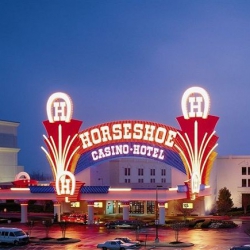Geoff Freeman of the American Gaming Association spoke in Biloxi on Wednesday this week. In his prepared comments, Freeman said legal sports betting could be the boost casinos need in Mississippi and other states.
Since 1992, the Profession and Amateur Sports Protection Act (PASPA) has made it illegal to wager on sports in most parts of the country. Only Nevada has full sports betting, while three other states have sports lotteries. In 46 other states, operating a sportsbook is illegal.
How Daily Fantasy Sports Affects the Debate
But Geoff Freeman says recent events have opened the door to the question of legal sports betting again. Top of the list is the daily fantasy sports issue. From 2009 until 2015, daily fantasy sports grew as an unregulated gaming industry. FanDuel began signing up players in 2009, while DraftKings was founded in 2011.
Armed with what appeared to be a rock-solid protection from federal prosecution in a fantasy sports carveout in the 2006 UIGEA law, the two companies built large fan bases and lured Wall Street and sports media investors. They also signed deals with teams and league offices in the NFL, NBA, MLB, and NHL. The same leagues have fought for decades to keep lawmakers from legalizing sportsbooks.
Ethan Haskell Data Scandal
Everything seemed legitimate, until a scandal involving a DraftKings employee in October 2015. That, combined with seemingly ubiquitous DFS advertisements, turned the public against DraftKings and FanDuel. Numerous state attorney generals began to ban DFS gaming, while US attorneys in New York and Florida opened investigations into the industries.
The two companies fought back through lawsuits and lobbying efforts. Over the months, 8 different U.S. states have legalized daily fantasy sports. More are expected to follow, though Texas, Illinois, and Alabama have banned daily fantasy sports. In most states, a debate has taken place.
Why Not Sports Betting?
That debate got Geoff Freeman and the AGA to thinking. Their conclusion was that Americans accept daily fantasy sports as a legitimate form of gaming, so why not sports betting.
Freeman said at his Wednesday press conference, “It begs the question, what’s the difference between that and betting on sports? And why do we have the antiquated models we have?”
Benefits of Regulation, Costs of Illegal Betting
Then he pointed out how a state like Mississippi with an important, yet struggling, casino industry could benefit from a new approach to sports betting. The AGA president said, “I’ve never been more optimistic about the prospects for legalized sports betting. Mississippi can benefit from that. The whole country can benefit from it.”
Calling for states to take back the right to regulate or ban sports betting, Freeman said, “This law (PASPA) has failed miserably.”
The states rights issue is one being championed by Gov. Chris Christie of New Jersey. In 2011, the voters of New Jersey voted to enact a pro-sports betting law. The idea was legalized sportsbooks might be able to save the Atlantic City casino industry, which has struggled mightily in the past few years.
New Jersey Sports Betting Lawsuit
When New Jersey tried to open sportsbooks in 2012, the NFL, NBA, Major League Baseball, NHL, and NCAA joined in a lawsuit to stop the practice. That led to legal battles at the district, appellate, and Supreme Court level of the courts. It ended in June 2012, when the U.S. Supreme Court declined to hear the case.
It didn’t end there, though. Instead, New Jersey’s legislature stripped away the regulations and decided to support their sportsbooks by simply not shutting down the gambling. This led to a new lawsuit by the sports associations. Every step of the way, the sports leagues have won the battles. Now, the case languishes in the 3rd Circuit Court of Appeals in Philadelphia.
Update: New Jersey Lost Its Appeal Tuesday
Just hours after this story was written, the 12-judge panel from the Third Circuit Court of Appeals rendered its decision. The judges voted 10-2 against New Jersey, thus striking down their partial repeal of the 2012 sports betting law.
New Jersey will not be able to legalize sportsbooks through a simple lack of prosecution. By prosecuting illegal bookmakers, but not punishing Monmouth Park, New Jersey is seen to be using a backdoor means to legalize a favored sportsbook.

